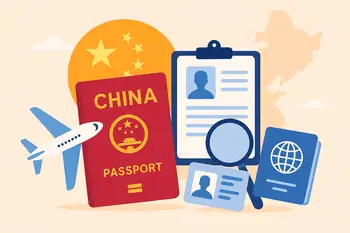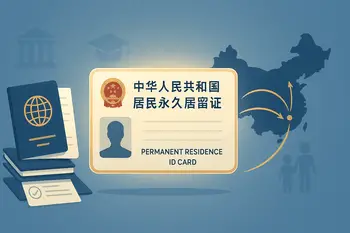
For international students studying in China, the question of whether they can work part-time while on a student visa is a common one.
With the rising cost of living and tuition fees, many students seek opportunities to earn extra income or gain work experience.
The good news is that working on a student visa in China is legal—but only under strict conditions.
This guide will walk you through the legalities, application process, and tips for staying compliant with Chinese regulations.
Understanding the Student Visa (X Visa)
The student visa, also known as the X Visa, is issued to international students who wish to study in China.
There are two main types of student visas:
- X1 Visa: For students planning to study in China for more than six months.
- X2 Visa: For students planning to study in China for less than six months.
Both visa types are intended strictly for study purposes.
Working without proper authorization is illegal and can result in severe consequences, including fines, deportation, and future visa denials.
For more details on visa types, visit the China Visa Application Service Center.
Is Working on a Student Visa Legal?
Yes, international students can work part-time in China, but only under specific conditions.
In 2013, the Chinese government introduced regulations allowing international students to undertake part-time work or internships off-campus.
However, this requires approval from both the educational institution and the local exit and entry administration.
Conditions for Part-Time Work
To legally work part-time in China, international students must meet the following conditions:
- Approval from the Educational Institution: Students must obtain written permission from their school. This is typically granted only if the student maintains good academic standing.
- Approval from Local Exit and Entry Administration: Students must apply for and receive approval from the local exit and entry administration office.
- Work Hours: Students are limited to working a maximum of 20 hours per week during the semester and full-time during holidays.
- Type of Work: The work must be related to the student’s field of study or deemed beneficial to their education.
For official guidelines, refer to the National Immigration Administration of China.
How to Apply for Work Authorization
To work legally on a student visa, you must follow these steps:
1. Obtain Permission from Your School
- Submit a request to your school’s international office or student affairs department. Include details about the job, such as the employer’s name, job title, and work hours.
- Ensure you maintain good academic standing, as this is often a prerequisite for approval.
2. Apply to the Local Exit and Entry Administration
- With your school’s written permission, visit the local exit and entry administration office to submit your application.
- Required documents typically include:
- Your passport
- Student visa
- Completed application form
- Permission letter from your school
- Details of the job or internship (e.g., contract or offer letter)
3. Receive a Work Permit
If your application is approved, you will receive a work permit specifying the duration and conditions of your employment. Keep this document with you at all times while working.
Types of Work Allowed
International students in China can engage in various types of part-time work and internships, provided they adhere to the regulations.
Common options include:
- Internships: Many students find internships related to their field of study. These provide valuable work experience and enhance academic learning.
- Teaching Assistantships: Some universities offer teaching assistant positions to international students, allowing them to earn extra income while assisting with classes.
- Tutoring: Language tutoring, especially English tutoring, is a popular and flexible option for international students.
- Freelancing: Depending on your skills, you may be able to take on freelance work, such as graphic design, writing, or digital marketing. However, ensure this work complies with visa regulations.
For tips on finding part-time work, check out platforms like LaowaiCareer or consult your university’s career services.
Consequences of Illegal Work
Working without proper authorization is a serious offense in China.
Violating visa regulations can lead to:
- Fines: Substantial fines may be imposed on students caught working illegally.
- Visa Revocation: Your student visa may be revoked, leading to the termination of your studies and immediate deportation.
- Future Visa Denials: Violating visa regulations can affect your ability to obtain future visas for China or other countries.
To avoid these consequences, always ensure you have the necessary approvals before starting any work.
Tips for Staying Compliant
To ensure you remain compliant with Chinese regulations while working part-time, follow these tips:
1. Seek Guidance from Your School
Always consult your school’s international office or student affairs department before pursuing any work opportunities. They can provide guidance and assist with the application process.
2. Keep Documentation
Maintain copies of all relevant documents, including your work permit and permission letters. These may be required for verification by authorities.
3. Prioritize Your Studies
Remember that your primary purpose in China is to study. Ensure that your part-time work does not interfere with your academic performance, as maintaining good academic standing is crucial for retaining work authorization.
4. Stay Informed
Regulations and requirements may change over time. Stay updated by regularly checking with your school or the local exit and entry administration. You can also visit the National Immigration Administration of China for updates.
Common Challenges and How to Overcome Them
1. Finding Legal Work
- Use university career services or platforms like ChinaJob to find part-time work opportunities.
- Network with professors, classmates, and alumni to discover internships or job openings.
2. Language Barriers
- If you’re not fluent in Chinese, focus on jobs that require English skills, such as tutoring or internships with international companies.
3. Misunderstanding Regulations
- Always double-check the type of work allowed and the number of hours permitted. If in doubt, consult your school or local authorities.
Conclusion
Working on a student visa in China is legal, provided you meet the necessary requirements and obtain proper authorization.
By understanding the regulations, seeking guidance from your educational institution, and adhering to the conditions, you can enjoy the benefits of part-time work while studying in China.
Remember to prioritize your studies, stay compliant with all regulations, and keep yourself informed about any changes to visa policies.
For the latest updates, visit the National Immigration Administration of China or consult your local exit and entry administration.
Good luck, and enjoy your time studying and working in China!


